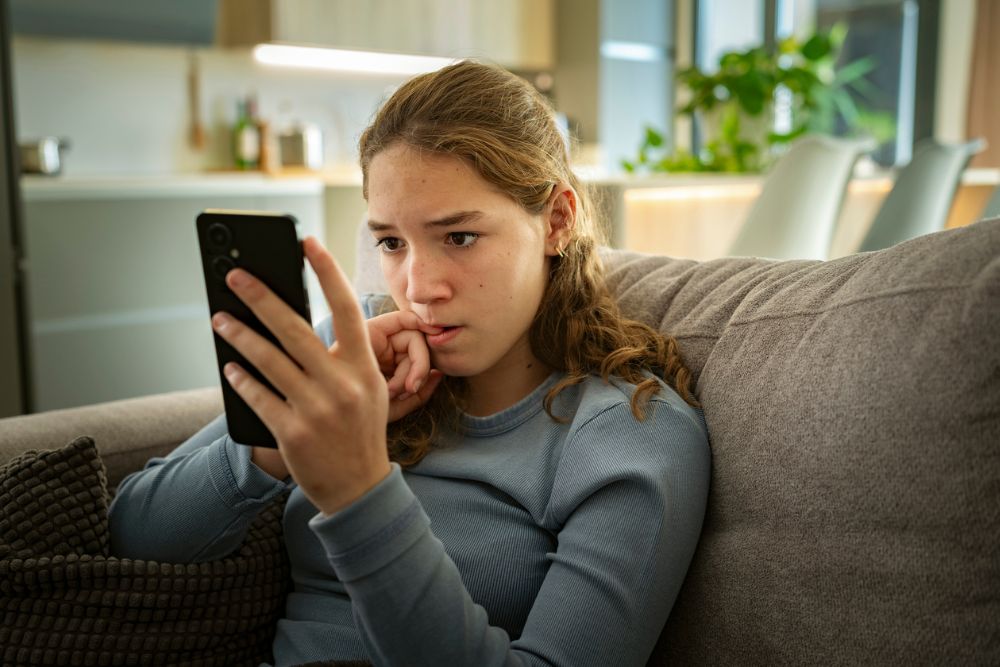Nearly a third of young people between the ages of 13 and 18 are thought to have at least one anxiety disorder, but only about 18 percent of young people with significant anxiety symptoms receive treatment. Anxiety disorders are the most common psychiatric conditions among children and adolescents. While these disorders are common in children and teenagers, parents are often not equipped to recognize and respond to their child’s mental health needs.
At Carolina Dunes Behavioral Health, in Leland, North Carolina, we treat adolescent anxiety disorders and offer support to families as they navigate their child’s mental health journey.
What Are Anxiety Disorders?
The umbrella of anxiety disorders includes a range of mental health diagnoses, each of which has a different set of symptoms. These include:
- Panic disorder
- Generalized anxiety disorder
- Agoraphobia
- Specific phobias
- Social anxiety disorder
- Post-traumatic stress disorder (PTSD)
- Obsessive-compulsive disorder (OCD)
- Separation anxiety
Common Anxiety Disorder Symptoms
Although each type of anxiety disorder has its own set of symptoms, it is not necessary for caregivers to know all of the ins and outs to recognize that something could be wrong. Some of the most common indicators of a potential anxiety disorder in children and adolescents include:
- Excessive worry or fear, which could manifest as crying, tantrums, freezing, clinging, trouble sleeping, or verbal indications of concern
- Avoidance
- Panic attacks
- Nightmares
- Digestive issues or nausea
- Not wanting to be away from familiar people/places
- Shortness of breath
- Difficulty concentrating
- Heart palpitations
- Difficulty talking to other people
The Danger of Ignoring Adolescent Mental Health Disorders
Anxiety and other mental health disorders can often be treated quite effectively. When they are ignored, however, they can become more severe, and young people may begin to blame themselves and see themselves as bad or weak people, as a result of having symptoms that are part of their treatable mental health condition. Their symptoms can disrupt their ability to have a normal life, impeding educational success, healthy relationship development, and the ability to feel safe and secure. Young people with untreated anxiety are also at higher risk for addiction to alcohol and other drugs, as they pursue any available means of managing their symptoms.
Risk Factors for Childhood Anxiety Disorders
While any person can develop an anxiety disorder, some are more at risk than others. This would include any youth who:
- Have a temperament that is more inclined toward anxiety
- Come from a low socio-economic background
- Are exposed to violence
- Experience trauma
- Have close blood relatives with anxiety disorders, such as parents or siblings
- Are targeted by bullies, either in person or online
There are ongoing concerns about what impact the COVID-19 pandemic has had on the mental health of young people, as there seems to be an indication that more young people have anxiety now than before the pandemic began.
What Parents Can Do
If you have reason to suspect that your child might be experiencing symptoms of an anxiety disorder, the best steps you can take include:
- Listening to your child and how they feel, and staying calm when your child expresses anxiety
- Celebrating your child’s successes when they push themselves outside their comfort zone
- Staying away from punishments when your child struggles to manage anxiety symptoms
- Being flexible, but maintaining a routine as best you can
- Adjusting your expectations during stressful times
- Helping your child to anticipate and manage transitions (getting ready for school can be an especially difficult time for anxious kids)
- Encouraging your child to engage in healthy self-care practices, including eating a healthy, well-balanced diet, getting adequate sleep, engaging in physical activity, and limiting caffeine intake
- Seeking out professional support for your child. There are several medical conditions that can present with symptoms like anxiety. Your child’s pediatrician can help rule out heart problems, stomach issues, thyroid conditions, and other medical concerns that can look like anxiety. They can also make a referral for a mental health assessment, which could lead to recommendations for therapy and/or medication.
At Carolina Dunes Behavioral Health, we know that the sooner a person’s mental health needs are recognized and met, the easier it is for them to recover and the more likely they are to make a complete recovery. This is why we offer inpatient treatment for children as young as 12 years old and caregiver support. We also ensure that our patients are discharged with plans for ongoing outpatient treatment, to make their transition home as smooth as possible.





